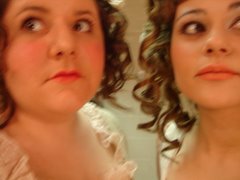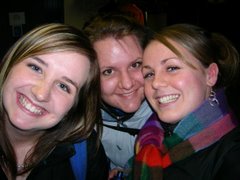Thought of the Week:
The Significance of Singing and Vocal Study
As a product of organic movement, voice involves the entire respiratory tract from the pelvis to the palatals. Thus, involvement in phonation not only produces sounds, but sounds which, once produced, are capable of releasing the self on both an emotional and intellectual plane. More importantly, from earliest periods of development to the highest level of singing as an art, this function makes contact with psychic forces within us which are profoundly spiritual and therefore universal.
In the original meaning of the Greek word psyche, the term was identified with breath, life and spirit, not, as presently thought, with some kind of mental problem. It is evident, therefore, that 'voice' is not just some form of exhibitionism or entertainment, but a revelation of the self and an inner desire to make contact with what is described by some as that 'other,' or 'otherness.'
In singing, the entire respiratory tract is engaged and becomes transformed into a musical instrument. David Ffrangcon-Davies was not only correct from a technical standpoint when he said, "I do not sing, my voice sings me," but by saying so, indicated an awareness of a spontaneous utterance born of freely expressed thoughts and feelings through the medium of sound. Revealed through those sounds is a self whose richness and profundity is transmitted through a medium of expression inseparable from the Greek concept of psyche as breath, life and spirit, a self which rises above mundane distractions embodied in a materialistic society.
This, in my opinion, is why we sing, because, as our American poet, Walt Whitman wrote, "There is something in me I know not of, but I know it is in me." To me music and singing are a quest for those spiritual dimensions which go beyond materialistic concerns and, indeed, even word meanings. As long as we remain aware of that unknown something within us we will, hopefully, come to some small understanding of the divine, which as a great theologian some centuries ago wisely observed, "If I am able to have any perception of the divine, then there must be some divinity within me."
We may not know what that divinity is, or simply choose to think about that 'other' in any one of a great number of ways; but it exists as an undeniable reality. Thus, there will always be those among us who seek that special dimension and will to the best of our ability deal with a materialistic society, balancing things out by learning to free the voice. How can that be? Simply because, by freeing the voice, the motility of the organs of respiration which produce it will have been restored to their natural state. It is that freedom, to whatever degree one will have attained it, which, by "washing us thoroughly" will enrich our lives and teach us how to deal more effectively and without compromise with the material world in which we live.
-- cornelius l. reid
late night ponderings, mid-day wonderings, early morning epiphanies. quotations, song lyrics, inside jokes...a small window into my life, and why it is worth living. though being six again would be grand.
me.

flower maiden + peasant = our first opera experience!
About Me
- Melinda
- What happens when you take a prairie girl, raised in BC, and drop her in southern alberta? If that's a question you've been asking, this is the blog to be reading. Because that's what's happened to me.
me n' taylor.

playing the chorus of 'blaze'.
the blog crew.
- [my surprise friend] patricia's blog!
- andrew's (man/myth/legend) blog
- chonger's blog
- darcee's blog
- dr.anthony p. radford...the distinguished blogger.
- erin's blog. (best sociology prof ever).
- lee's blog
- lowell & julie's blog.
- mandy's blog
- Rob Steele
- Shelley's blog.
- skakes' blog.
- tara's blog.
- the beautiful bethany's blog.
LADIES!!!

dee, me, and ma just bein' beautiful. it's how we roll.
Blog Archive
-
▼
2007
(81)
-
▼
February
(15)
- part...4? Feb.20, 2007!!!
- PART 3: Feb.19, 2007.
- PART 2: Feb.18, 2007.
- new york: my blogger scrapbook. PART 1: FEB.17, 2...
- update.
- manhattan at night, starring: me!
- big apples, antique toys, and a tall green lady.
- guess where i am?
- newyork, newyork, newyork...trains, planes, and ch...
- yo!
- here i am.
- why i am going to new york for reading week, part 1.
- tyson is here.
- my favourite things are memories.
- pictures!
-
▼
February
(15)
No comments:
Post a Comment